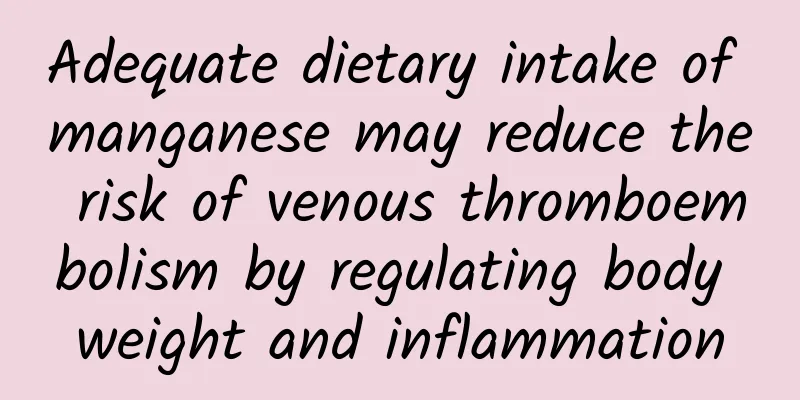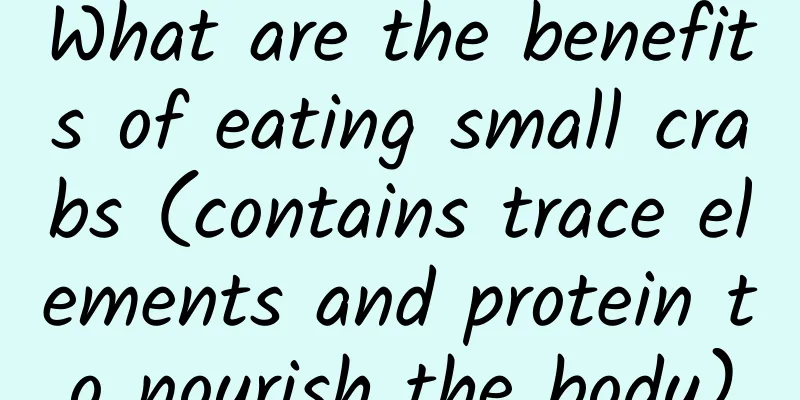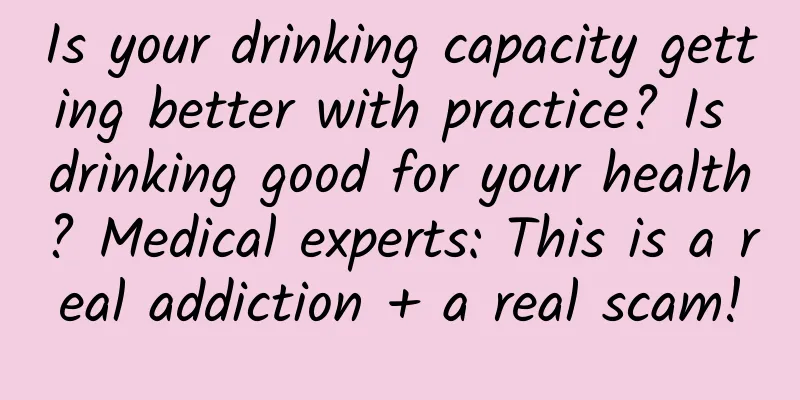Adequate dietary intake of manganese may reduce the risk of venous thromboembolism by regulating body weight and inflammation

|
Venous thromboembolism (VTE), including deep vein thrombosis (DVT) and pulmonary embolism (PE), is the third most common vascular disease after acute myocardial infarction and stroke, with approximately 10 million new cases of VTE each year worldwide. Therefore, identifying more modifiable risk factors to strengthen primary prevention of VTE has important clinical value and public health significance. Manganese (Mn) is an essential trace mineral element for the human body, and its main source is dietary intake. Manganese is involved in a series of physiological and pathological processes related to blood coagulation and vascular injury, including oxidative stress, platelet aggregation, activation of coagulation factors, and endothelial cell dysfunction. However, to date, the prospective association between dietary manganese intake and VTE risk and the potential mechanistic pathways remain unclear. (The picture comes from the Internet, the copyright belongs to the original author) In response to the above clinical problems, a recent study published in the journal Thrombosis and Haemostasis found that dietary manganese intake was negatively correlated with the risk of VTE, and this negative correlation was mainly mediated by obesity, inflammatory biomarkers, and red blood cell distribution width . Professor Qin Xianhui from the National Clinical Research Center for Kidney Diseases, Nanfang Hospital, Southern Medical University is the corresponding author of the article, and Master's student Huang Yu and Doctoral student Zhang Yanjun are co-first authors. The study included 202,507 middle-aged and elderly participants from the UK Biobank who had complete dietary data and were free of venous thromboembolism at baseline. Detailed dietary intake was collected using a 24-hour dietary assessment questionnaire, and the total energy and various nutrient intakes of each subject were calculated based on the UK Nutrition Database food composition tables. During a median follow-up of 11.6 years, 4750 (2.3%) participants developed VTE. Overall, an increase of 1 mg/day in dietary manganese intake was associated with a significant 8% reduction in the risk of VTE, 7% in the risk of DVT, and 9% in the risk of PE (Figure 1). Figure 1 Association between dietary manganese intake and the risk of VTE (A), DVT (B) and PE (C) In addition, BMI, waist circumference, C-reactive protein, white blood cell count, red blood cell distribution width, and physical activity significantly mediated the negative correlation between dietary manganese intake and the risk of VTE, with the mediation proportions being 36.0%, 36.5%, 4.3%, 4.2%, 1.6%, and 1.6%, respectively (Figure 2). Figure 2 The mediating effect of obesity and inflammation In conclusion, our study suggests that adequate dietary manganese intake can reduce the risk of venous thromboembolism by regulating body weight and inflammation . Our findings once again highlight the important role of nutrition in vascular diseases. There are thousands of health strategies, but eating well is the most important. Reasonable diet and scientific nutrition are the cornerstone and core of effectively promoting group health and achieving active health. Information Point - Risk Factors for Deep Vein Thrombosis (The picture comes from the Internet, the copyright belongs to the original author) References: Huang Y, Zhang Y, Yang S, Xiang H, Zhou C, Ye Z, Liu M, He P, Zhang Y, Gan X, Qin X. Association and Pathways between Dietary Manganese Intake and Incident Venous Thromboembolism. Thromb Haemost . 2023 Dec 27. Editor | Zhang Yanjun, Huang Yu, Xianghao Audit | Qin Xianhui |
Recommend
Selenium-rich eggs turn into “golden eggs”. Are selenium-rich products really anti-cancer or are they just a “tax on IQ”?
Author: I am Yun Wuxin, PhD in Food Engineering a...
What does it mean to send Blue Enchantress on Valentine's Day? What does Blue Enchantress represent?
Blue Enchantress is a very beautiful flower, nati...
Is it serious if your period is delayed for two months?
A two-month delay in menstruation is not a seriou...
What to do if there is a mass in the ovary
In our daily life, female friends have poor stres...
What is the best way to treat dysmenorrhea?
If a woman experiences dysmenorrhea, it will caus...
Is there a zero-gravity restaurant in Hangzhou? How is the zero-gravity restaurant in Hangzhou?
Friends who often watch Douyin and Kuaishou must ...
Is soup a kind of "junk food"? How can we drink soup scientifically?
Soup is a nutritious and nourishing dish on many ...
Delayed menstruation and bloating
Sometimes, when you feel that your period is dela...
Will there be two bars for false pregnancy?
For newlyweds, building a happy home is a very in...
What should pregnant women do if they eat papaya?
We all know that you cannot eat papaya during pre...
For 100 yuan of rice, I spent 100,000 yuan on medical expenses. Health knowledge that should be paid attention to
"Many people die not from disease but from i...
Attention: taking medicine before meals and taking medicine on an empty stomach are not the same thing!
When people eat grains, it is inevitable that the...
What can make a period heavier?
Now many people also know that women during menst...
To prevent and treat osteoporosis, how should we live a healthy life and exercise scientifically?
I believe that everyone must have paid attention ...
Obesity is also a disease! How you eat and how you move are very important!
Author: Sun Mingxiao, chief physician of Beijing ...









